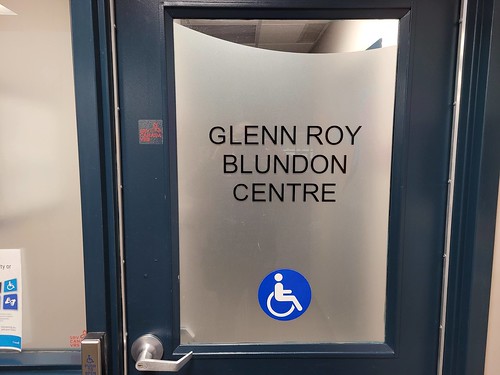Growing up as a disabled person in Newfoundland, I never considered what being disabled genuinely meant until I began thinking about what life after high school should look like for me. Looking that far into the future was a scary endeavour, one that I continue to think about as I navigate through the last few years of my post-secondary journey.
As a doctoral student with permanent hearing loss (a bilateral, mild sloping to severe, sensorineural hearing loss), I have become accustomed to facing inaccessible access points within the post-secondary education system, something that many students know all too well. I am constantly working on being a better advocate for myself and other students, but this has not always been the case. Luckily, there are two good resources offered through Memorial that students with varying disabilities can take advantage of.
Suppose you find yourself struggling with the financial burden of managing your disability. In that case, I strongly suggest applying for the Canada Student Grants for Students with Permanent Disabilities (CSG-D) and the Canada Student Grant for Services and Equipment for Students with Permanent Disabilities (CSG-PDSE), both offered through the Student Aid Office. Check out the eligibility requirements; the main restriction is that you must be a Canadian citizen or permanent resident. Through these, for example, students with hearing loss can avail of funds to help offset or fully cover the costs of services such as note-takers or translators and equipment like FM systems.
Since the first year of my undergrad at Memorial, I have been availing of the Accessibility Services offered through the Blundon Centre (located on the fourth floor of the University Centre; UC4000). This fantastic team of advisors and coordinators offers numerous services to help you with testing accommodations, provide accessible learning strategies, and, most importantly, be your advocate on campus. These individuals act as a liaison between you and your instructors, ensuring that they are aware of and acknowledge your disability and that any protocols discussed between you and your Blundon Centre advisor continue to be practiced in the classroom setting. I highly suggest downloading the Clockwork app, as it is a fast way for you to request accommodations, schedule exams, and book appointments. However, some unjust accessibility issues need more than an internal review by faculty and staff on campus.

The accessibility of Memorial University is gradually evolving, whether through new ways for people to navigate and access areas of campus that were previously inaccessible or the implementation of strategies for instructors to better cater to the diverse learning styles of a myriad of students. Thus, if you are passionate about student-centred learning and advocating for a more accessible classroom setting, I strongly recommend registering for and completing the Teaching Skills Enhancement Program (TSEP). This professional development course, free and strictly offered to graduate students, is designed to be an introduction to teaching at the undergraduate level. Students learn about new and exciting ways to develop teaching styles that put students at the forefront, with ample opportunity for feedback and input. It is a classic example of the saying: “Be the change that you wish to see.”
I hope you have learned something new or taken something out of reading this blog post that will benefit you or someone you know. Never hesitate to reach out and ask people for help and advice, and always advocate for yourself because, at the end of the day, nobody knows you better than yourself!